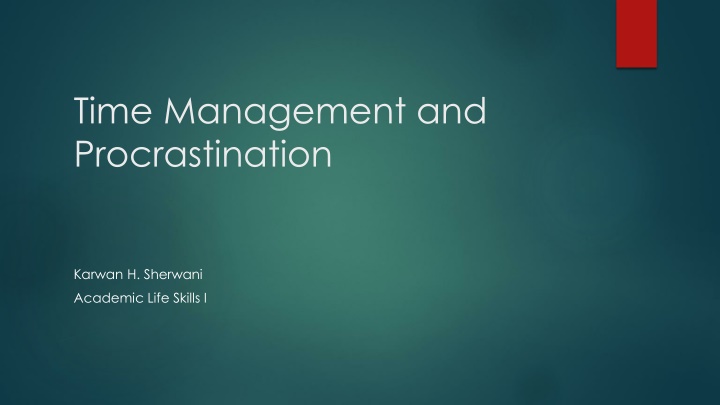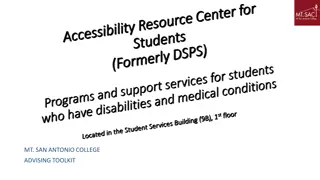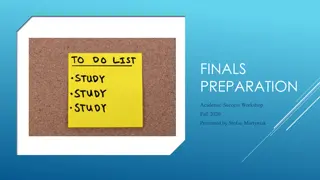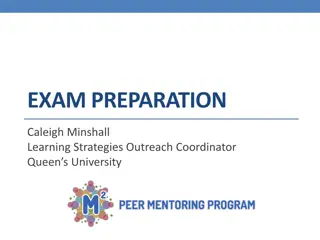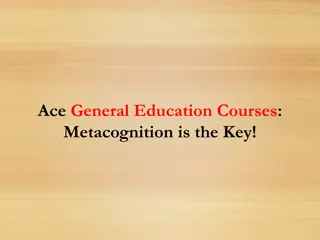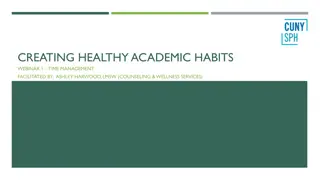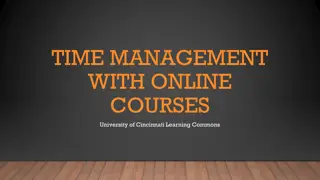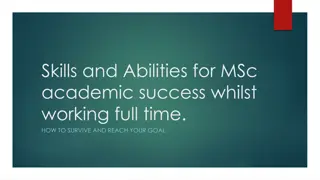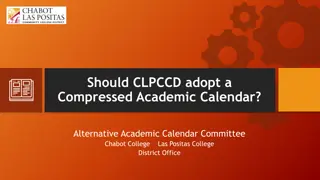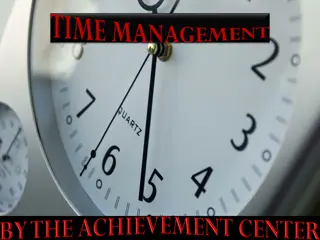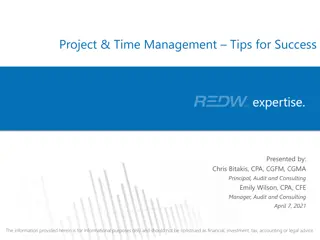Effective Time Management Strategies for Academic Success
Understanding the importance of time management in academic life is crucial for success. Time management involves using time efficiently for work and school, reducing stress, and increasing productivity. Signs of poor time management include clutter, missed appointments, and lack of preparation. Strategies such as analyzing time usage, identifying tasks, and setting priorities can help improve time management skills and lead to a more organized and successful academic journey.
Download Presentation

Please find below an Image/Link to download the presentation.
The content on the website is provided AS IS for your information and personal use only. It may not be sold, licensed, or shared on other websites without obtaining consent from the author.If you encounter any issues during the download, it is possible that the publisher has removed the file from their server.
You are allowed to download the files provided on this website for personal or commercial use, subject to the condition that they are used lawfully. All files are the property of their respective owners.
The content on the website is provided AS IS for your information and personal use only. It may not be sold, licensed, or shared on other websites without obtaining consent from the author.
E N D
Presentation Transcript
Time Management and Procrastination Karwan H. Sherwani Academic Life Skills I
Time Management Means: The ability to use time productively and efficiently, especially for life, work, business, and school.
Importance of Time Management Remember that time is money Ben Franklin, 1748 Advice to a young tradesman
Importance of Time Management Cont.. Students who have difficulty managing their time, have difficulty managing their department courses. A study of successful students of sophomore and time management. Bad time management = Stress. Time famine.
The concept of Time Management Implementation Time management should not be viewed only as university success strategy, but also as a life management and life success skill. The more you are in control of your time, you become more satisfied and happier with your life.
Signs of Bad Time Management Messy desk and cluttered (or no) files Can t find things Miss appointments, need to reschedule them late and/or unprepared for meetings Volunteer to do things other people should do Tired/unable to concentrate
Strategies for Time Management 1. Analyze become more aware about how it s spent. To do this, you conduct a time analysis by breaking down and track your time
Exercise, What is your greatest time waster? What to do to stop or eliminate it?
2. Itemize, identify which specific tasks you need to accomplish and when you need to accomplish them. A planner. To list all the assignments, duties, commitments. To keep track of what you have to do and when you have to do it. Modern Techniques: Wunderlist app. * Google Tasks Get things done Etc.
3. Prioritize, Rank your tasks in order of their Importance. determine the order in which you will do them. Two criteria of judgment to determine the priorities: 1) Urgency: tasks that are closest to their deadlines needs to take priority. 2) Gravity: Tasks that carry high importance, or mark, needs to receive highest priority.
Final tips for TM Humans are creatures of habits, regular routine help us organize and control our life. Doing things by design, rather than leaving them to chance or accident
Procrastination Derives from two roots: Pro (Forward) + Crastinus (Tomorrow) Procrastinators use Why do today what can be put off until tomorrow? Instead of Why put off to tomorrow what can be done today
Wrong myth about Procrastination I work better under pressure. 1. Being under pressure, you may only focus on doing the assignment, or duty fast, but not on the quality of the duty. Studying in advance is a waste of time because you will forget it all by the test time. 2. Usually results in lost sleep, anxiety due to lack of sleep. Rapid Eye Movement (REM). They experience higher rate of insomnia, stomach ache, colds and flu + Family Emergency.
Psychological causes of Procrastination
